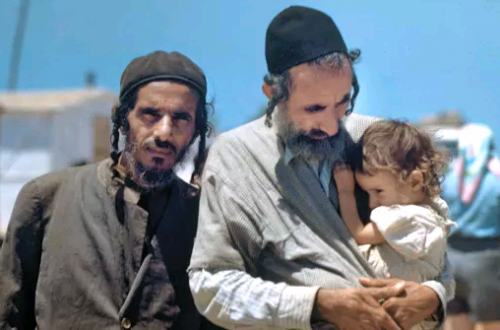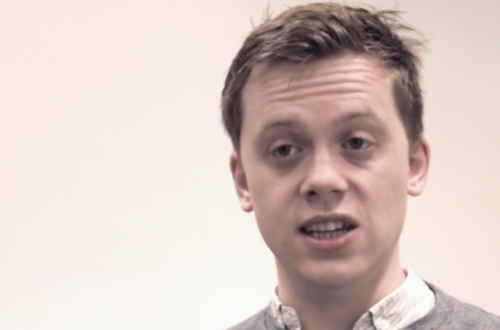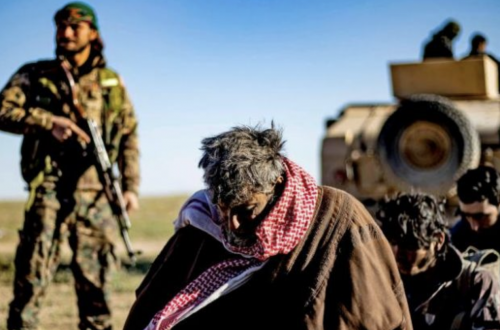A number of liberal Rabbis have endorsed London Citizens, in the wake of the revelation that their Deputy Chair, Junaid Ahmed regards Hamas as “heroes”.
Here’s a report from the JC:
As the controversy deepened, Rabbi Jeremy Gordon told New London Synagogue in his weekly address: “I’ve watched the speech and I’m in pain as these people, who inspire terrorist atrocities, are held up as heroes.”
Rabbi Gordon said he remained a supporter of London Citizens. “Someone has to care about bringing diverse communities together and I have met no-one who does that better than London Citizens.”
At the New North London Synagogue, Rabbi Jonathan Wittenberg also wrote to members. He said: “The JC named me today for my participation in events held by London Citizens, criticising the organisation because of the role within it of a Muslim leader who, the paper shows, expressed support for Hamas during the Gaza war. I abhor such views and expect London Citizens to take this matter most seriously.”
However, he argued that dialogue should continue. “We have to take risks to engage with each other. The Jewish community will be far weaker if we all shelter within a comfort zone labelled ‘They all hate us out there’.”
Rabbi Wittenberg also has a thoughtful piece which touches upon these issues. I urge you to read it in full.
I want to take one section from that piece to explain to Rabbi Wittenberg how standing up for extremists undermines liberals. The Rabbi says:
But I’m risking committing the very error I’m warning against. My point is that we shouldn’t make “the world hates us” our motto. It is a negative basis for Jewish identity and accords our detractors a victory they don’t deserve. It represents not courage but submission to our fears. Most importantly, it is untrue of the creative reality of Anglo-Jewry.
Jewish life in Britain today is more vital than ever. Think of Limmud, Jewish Book Week, the Jewish Film Festival, Gefiltefest, independent minyanim, the rich interface of inter-faith encounter, and the flourishing social action scene largely due to the inspiration of the Pears Foundation. The story we tell should embrace this creative Jewish energy. We’d let ourselves down if we allowed the hunt for antisemites to dominate it.
I agree with that. I also agree that an organisation like Citizens UK really ought to be a very valuable movement indeed.
But here’s the error. The concerns in relation to London Citizens, the East London Mosque, and the Islamic Forum Europe aren’t primarily about Jews and antisemitism. They’re not even about Israel.
The real story of the East London Mosque and the Islamic Forum Europe, is that of a small group of individuals, connected to the far Right Islamist party, Jamaat-e-Islami, who settled in the United Kingdom in the aftermath of the genocide of Bangladeshis during their War of Liberation. That story is still playing out in Bangladesh, where the party has been wiped out in the polls, its leaders finally about to face justice for their terrible war crimes.
British Bangladeshis know that this is the dynamic which underpins this controversy. The close links of the East London Mosque and Islamic Forum Europe to Jamaat-e-Islami and even the genocidaires of the 1970s are well understood by them. Many Muslim liberals are fighting a desperate battle against their pernicious influence. They know what will happen to their communities, if the far Right takes over. They also know that London Citizens has deep links with the Jamaat-e-Islami network, and has all but ignored Muslims from non-Islamist backgrounds.
Here’s Delwar Hussain:
It is striking that a party with the Jamaat’s record can attract young people in Britain, when for the most part, they have little interest in the politics of their parents’ or grandparents’ country. In south Asia, the party has drawn support from those both promoted and dislocated by modernisation – middle-class people (teachers, lawyers, and engineers among them) repelled by western ideas and attracted to the ideological rigour of fundamentalism.
Indeed, societies in transition often generate fundamentalism. In London, the absence of a Bangladeshi middle-class has meant that support for the Jamaat was negligible, but it has discovered another constituency: the British-educated Bengali working class, those at the bottom of Britain’s social pyramid, heirs to endemic poverty and exclusion. The path of social advancement may be closed to them elsewhere, but the doorway to rightwing, fundamentalist theology is broad and always open.
British Rabbis do not understand this. Why should they? Very little coverage is given to Bangladeshi history and politics in the mainstream British press. These battles do not have the resonance of the Israel-Palestine dispute. It is therefore very natural for liberal British Rabbis to believe that they are “reaching out across the divide”, and keeping lines of communication open. That is, in many ways, a very impressive thing to want to do.
However, it is also a dangerously counterproductive strategy which risks isolating Muslim liberals and promoting the Islamist far Right at their expense. As a parallel, imagine that a political movement like Kach or Kahane Chai – or the sort of people who chant “Death to Arabs” in Jerusalem – were to establish a series of front organisations within the British Jewish community, gained control of the St John’s Wood Synagogue, and started to make links with other local community bodies. Imagine that, after a decade of organisation, they had outflanked mainstream quietist and introspective Orthodox Jewish organisations and had managed to attack their liberal Jewish critics as antisemites. That is, in effect, what the Islamic Forum Europe and the East London Mosque has achieved.
Of course, nothing like this would happen. That is because there is a level of ignorance and prejudice surrounding the politics of Muslim communities: in which the more extreme and radical an activist is, the more “authentic” he is thought to be. Jews, by contrast, are assumed to be liberal in outlook, and police extremism rigorously. Look at the angry opposition the so called Jewish Division of the EDL has met from major Jewish institutions.
It is important that Rabbis who are invited to participate in events with the East London Mosque do so with open eyes. That doesn’t mean not participating in events with Jamaat-e-Islami connected organisations. However, when you do so, ask the hard questions, do your research, delve beyond the excuses and explanations that you’ll be given for the repeated promotion and hosting of hate preachers. Use those platforms as a way of taking the argument to them. Consult Muslim liberals and help them defend their own communities from sectarianism and extremism. Make allies. Don’t betray them.
The Rabbis who have become involved with the East London Mosque are doing so out of the best of motives. However, tragically, they will be used as a trump card, to silence Muslim liberals who point out the disturbing links of senior East London Mosque and Islamic Forum Europe activists to homophobic and racist political movements, with a shameful links to genocide in Bangladesh, some 40 years ago. They will be used, in effect, as a kosher hechsher for their extremism. This is not an idle concern: this is precisely what the East London Mosque has done, on other occasions.
Ironically, the very liberal Muslims with whom liberal Jews have the greatest common ground are the ones who are the most seriously undermined by this relationship.
In short: it is not all about antisemitism. It is all about the duty of solidarity that liberals owe to each other.


